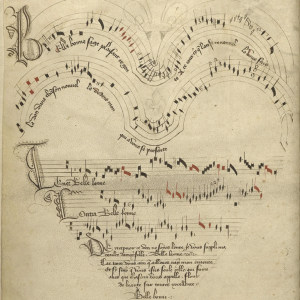
Harkness Chapel/Classroom
Haydn Hall
Every two years, the Music Graduate Student Association (MGSA) selects a topic around which to organize a two-day conference that is presented with support of the School of Graduate Studies, the Department of Music, and the Center for Popular Music Studies, as well as other units in the humanities. The conference attracts papers from graduate students from across the country and has been an excellent forum for discussion not only of each year’s topic but also of current issues in the field that are relevant to all graduate students.
The MGSA welcomes keynote speakers and guests to Case Western Reserve University:
- Co-Presidents: Maura Sugg and Sam Nemeth
- Area VP for Musicology: Katie Sucha
- Area VP for HPP: Kameryn Lueng
- Area VP for MuEd: Jason Delfing
- VP for Communications: Krista Mitchell
- VP for Events and Finance: Bethany Westphal
- Department Senator to GCAS: Dane Harrison
Conference Guests
- Directions and Parking
- Nearby Accommodations (Hotels closest to campus: Glidden House, Courtyard Marriott)
- More Information: musicgrad@case.edu
Conference Schedule
Friday, March 31, 2023
1:30 PM, Harkness Chapel Foyer
Participant/Student Check-in
2:15 - 3:30 PM, Harkness Classroom
Panel 1, “What’s Under the Surface"
- Marcelo Rebuffi (CWRU) "Post-War Trauma, Disability, and Multi-Narrative Strategies in Prog Rock"
- Maura Sugg (CWRU) ""That Funny Feeling:' Performing Melancholia in Bo Burnham's Inside (2021)"
4:00 - 5:30 PM, Harkness Classroom
Colloquium (Keynote #1), Jill Rogers (Indiana University) “Play it Again, Yvonne: Radio Performance as an Embodied Technology of Hope, Love, and Friendship during World War II”
|
About the Talk In this paper, I show how Lefébure employed radio as both a bodily, socio-emotional, and political technology during and immediately after World War II. I analyze letters, contracts, and radio broadcast scripts in Lefébure’s vast but virtually untouched archive that demonstrate how Lefébure and those in her social circle understood and chose to utilize radio performances amidst the war’s political and emotional turmoil. This paper not only highlights the political and social significance of radio piano performances during the war; it also sheds light on the life of a pianist who, though largely forgotten today, functioned as a beacon of solidarity and hope for many of her time. About the Speaker |
5:45 - 6:45 PM, Haydn Hall 1st Floor Music Hall
Graduate Student Dinner (provided)
7:00 PM, TBD
Informal Evening Entertainment/Graduate Student Gathering
8:30 PM
Depart for the Evening
Saturday, April 1, 2023
9:15 AM, Harkness Chapel Foyer
Light Breakfast and Coffee (provided)
10:00 - 11:45 AM, Harkness Classroom
Panel 2, “Affects, Passions, and Performing”
- Eleanor Legault (The Julliard School) "Commanding the Passions: Historical Acting Techniques in Music and the Body"
- Krista Mitchell (CWRU) "Music as an Embodied Performance Enhancer: The Importance of Choreomusical Congruence in Pole Dance Competitions"
- Kayla Solomon (U. of Illinois) "Injury Prevention for Optimal Embouchure Performance"
12:00 - 1:00 PM
Break for Lunch (on your own)
1:15 - 3:30 PM, Harkness Classroom
Panel 3, “Musical Embodiment”
- Chieh Huang (UC Irvine) "Relation, Positionality and Embodiment in Indigenous Music"
- Erin Hopkins (CWRU) "Musical Stimming in Autistic Adults"
- Cecilia Hiros (U. of Michigan) "Bodyminds: A Disability Theory for Embodied Classical Performance"
3:30 - 3:45 PM, Harkness Chapel Foyer
Short Break (beverages provided)
4:00 - 5:30 PM, Harkness Classroom
Keynote #2, Maria Cizmic (University of South Florida) “Story of an Artist”: Performing Disability and the Music of Daniel Johnston”
|
About the Talk About the Speaker |
5:30 - 5:45 PM
Closing Remarks
We strongly encourage all campus visitors to be fully vaccinated—including boosters if eligible. All visitors and members of the university may choose whether to wear masks indoors on campus, unless they are in clinical settings, including the dental clinic, or have received university approval for an exception. We encourage everyone in the campus community to respect individual choices to wear a mask. Please remember that those with COVID-19 symptoms should stay home. Learn more about CWRU's COVID-19 response.

